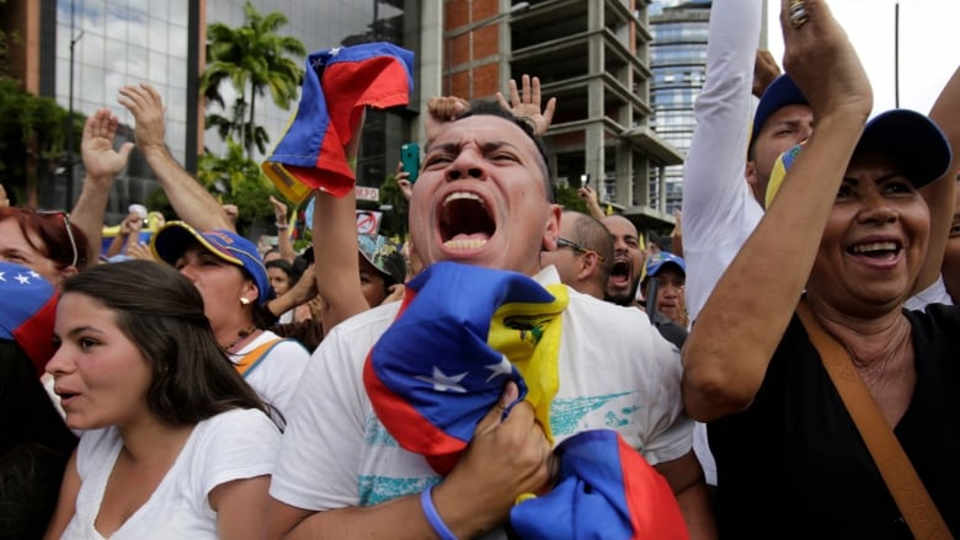Venezuela suspended its demand that U.S. diplomats leave the country in 72 hours (which would have been today, Sunday, January 27), while the United States has called on the world to “choose a side”.

President Nicolas Maduro broke diplomatic relations with the United States on Wednesday, January 23, after the Trump White recognized opposition leader Juan Guaido as Venezuela’s interim president, and many other nations in the region following the U.S. lead.
Maduro called it a coup attempt.
Following Maduro’s demand, the Trump administration said it wouldn’t obey, arguing that Maduro is no longer Venezuela’s ‘legitimate president’, setting the stage for a showdown.
But Saturday night, the 72-hour deadline, the Foreign Ministry issued a statement saying Maduro’s government was “suspending the expulsion to provide a 30-day window for negotiating with U.S. officials about setting up a ‘U.S. interests office’ in Venezuela and a similar Venezuelan office in the United States.”
The U.S. and Cuba had a similar arrangement for decades before the Obama administration restored diplomatic relations with the government of Raul Castro, who took office from his brother Fidel Castro when he became too ill to govern.
The State Department reiterated that its priority remains the safety of its people and that it has no plans to close the embassy in Caracas. But it did not confirm the statement by the Venezuela Foreign Ministry.
Earlier Saturday, Secretary of State Mike Pompeo told the U.N. Security Council: “Let me be 100 percent clear, President Trump and I fully expect that our diplomats will continue to receive protections provided under the Vienna Convention. Do not test the United States on our resolve to protect our people.”













